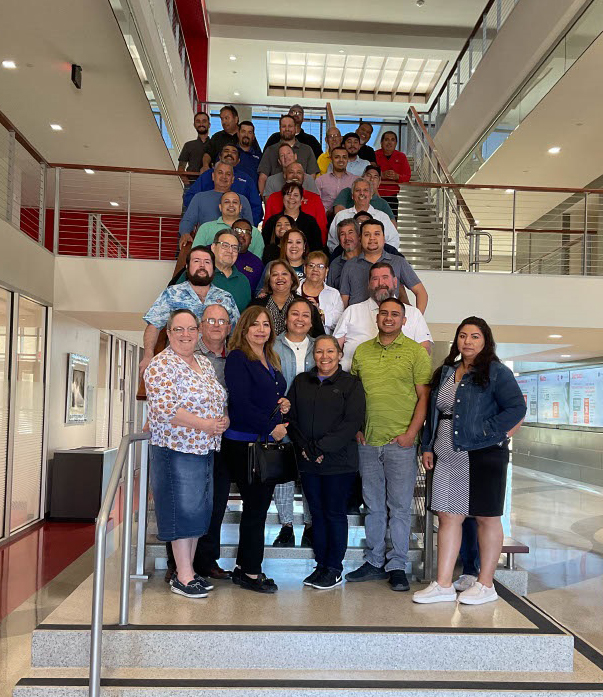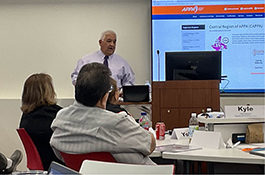
Engaging diverse future leaders in timely, highly effective training is a priority for all institutions in the changing educational and professional landscape. To cultivate a diverse workforce, we must step up our focus on workforce culture, providing ways to access training opportunities and colleague connections even when financial resources are often limited.
The professional development committee of CAPPA (Central Region of APPA) strives to provide opportunities for CAPPA members to network and learn, according to Marissa Pierson, CAPPA Toolkit coordinator and director of facility services at the University of Oklahoma. These programs include Toolkit offerings, scholarship awards, and conference sessions.
Increasing the participant pool

Thirty-two facilities professionals took part in CAPPA’s first bilingual Supervisor’s Toolkit.
One way that CAPPA’s professional development committee engages diverse populations is through a bilingual (English and Spanish) Supervisor’s Toolkit. “There is a tendency to think of literacy as being binary, as being either/or,” said Glen Haubold, retired associate vice president of Facilities and Services at New Mexico State University and a bilingual Supervisor’s Toolkit instructor. “In fact, there are degrees of literacy in both reading and writing. One can speak English and still have stronger abilities in a second language, usually Spanish.” He and other CAPPA members discovered that some supervisors avoided taking Supervisor’s Toolkit because they were uncomfortable with their English reading and writing skills, which led to the efforts to translate the written materials into Spanish. This grew into a bilingual offering after CAPPA was able to recruit two excellent instructors who spoke English and Spanish. Offering bilingual professional training allows CAPPA to reach a vast and integral population of professionals in the region and increases the pool of participants who may be seeking a professional cohort within CAPPA Learn more about APPA’s bilingual initiative.

George Morales (shown) helped lead the debut program at Texas Tech Health Science Center.
Financing is another option for professional development on many campuses. In 2023, CAPPA approved eight scholarships to partially cover the cost of Supervisor Toolkits and, at the annual conference, awarded another 12 Toolkit seats to future events, Pierson said. CAPPA’s professional development committee is also committed to covering parts of the cost of travel for those interested in becoming Toolkit trainers. As institutions tighten their budgets post-pandemic and amid the looming enrollment cliff, we at CAPPA believe that leaning on member benefits to help fund professional development is a vital way to maintain the quality of training and sense of connection among our teams.
CAPPA’s bilingual program is aimed at building a diverse facilities workforce, but every APPA region—if not every educational institution—faces similar challenges. I encourage other APPA members to connect with your regional boards to fully understand and engage with all of the member benefits your board might create and to bring forward new ideas for improving the professional lives of you and your colleagues.
Whitney Jibben is the assistant dean of students at Augustana University (Sioux Falls, SD) and CAPPA membership chair. She can be reached at [email protected]. This is her first article for Facilities Manager.
Membership Matters
Explores the community benefits of leadership in educational facilities for professionals seeking to build their careers, transform their institutions, and elevate the value and recognition of facilities in education. To contribute, contact Kevin Willmann, FM Column Editor.
See all Membership Matters.


